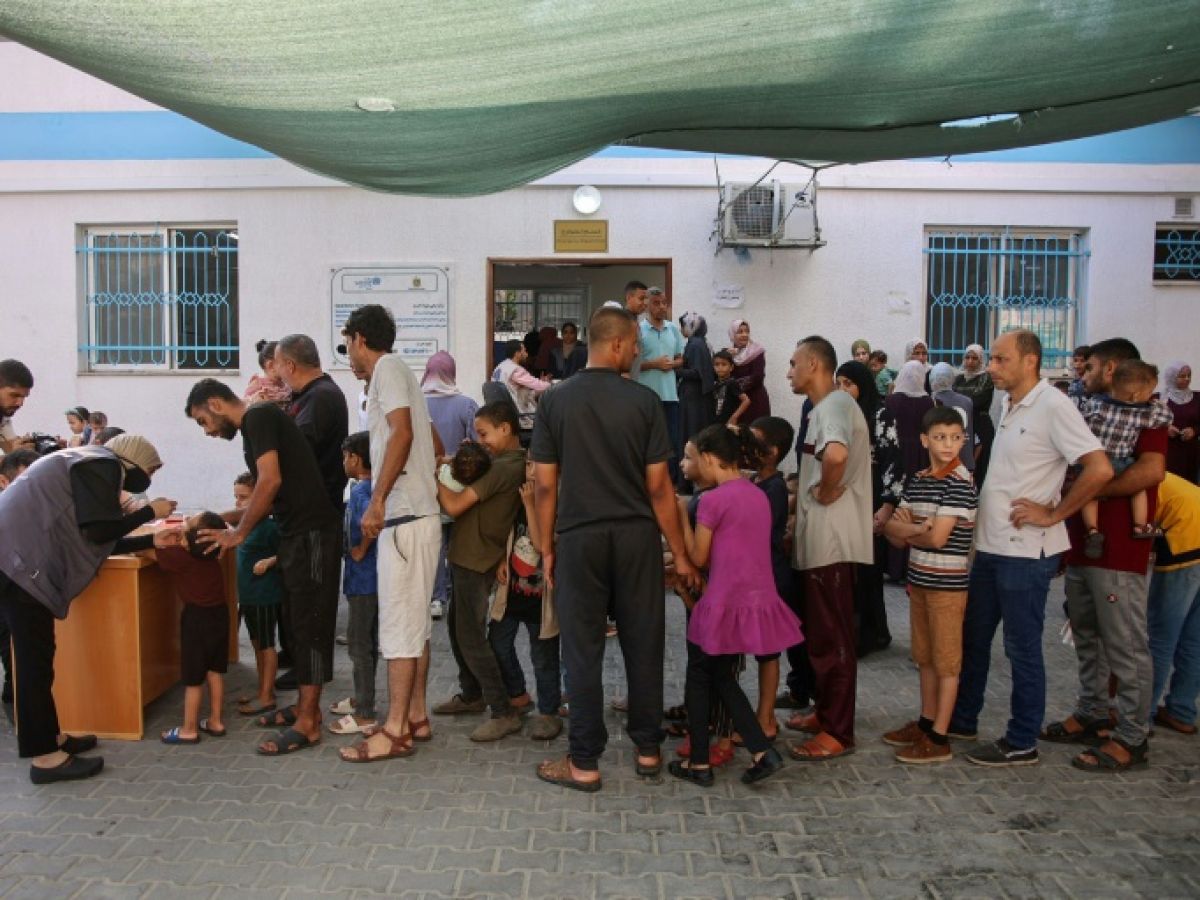The polio vaccination campaign targeting children in Gaza began Tuesday in the northern Palestinian territory, the WHO said, although a convoy carrying fuel and experts was "hindered."
Following the discovery of the first case of polio in Gaza in 25 years, a large-scale campaign began on September 1, with the help of "humanitarian pauses" in the fighting, targeting 640,000 children under the age of ten.
The goal is to prevent the spread of circulating vaccine-derived poliovirus type 2 (cVDPV2). Two drops of the nPOV2 vaccine must be administered four weeks apart.
Maher Shamiya, deputy health minister in the Gaza Strip, told AFP that 230 teams were working to distribute the vaccines and that there had already been "a significant turnout of families wanting to have their children vaccinated."
"I came to protect my children from polio," said Samah Yahya, 38, a mother of two from Gaza City.
The Gaza Health Ministry reported in August the first case of polio in 25 years in the Palestinian territory ravaged by the war between Israel and the Palestinian Islamist movement Hamas and in the grip of a humanitarian disaster.
Vaccines, cold chain equipment, and other supplies were delivered to northern Gaza yesterday, the WHO spokesperson said, but a WHO mission transporting fuel for hospitals and vehicles for the polio campaign, as well as experts monitoring it, was impeded.
The mission waited three hours for the Israeli green light, "then five hours at the holding point, after which the mission had to be canceled," he explained.
– Access difficulties –

The WHO is concerned that some areas of northern Gaza are being hit by Israeli evacuation orders, even though they are part of areas where humanitarian pauses have been decided.
Mr. Jasarevic said another WHO mission aimed at reaching Gaza's largest hospital, al-Shifa, in the north, was also "hindered" on Monday. This was the fourth time in four days that the WHO had been unable to reach the hospital.
"We call for safe and sustainable access to the north and a functioning deconfliction system, which remains a challenge 11 months after the start of the war," said the WHO spokesperson, adding that the number of requests for access to the north that were refused had "doubled in August compared to previous months."
A UN spokesman, Jens Laerke, also told reporters that of the 208 attempts the UN made to access the northern Gaza Strip in August, only 74 resulted in the delivery of the intended aid.

"Forty-four were hindered, meaning they were blocked or delayed on the ground, leading to the cancellation of some of them, while 72 were simply refused," he said, adding that the rest were canceled by the UN for logistical, operational or security reasons.
The October 7 attack by Hamas in the southern border region of Israel resulted in the deaths of 1,205 people, mostly civilians, according to an AFP tally based on official Israeli data.
In response, Israel launched a major offensive in Gaza that left more than 41,000 dead, according to the health ministry of the Hamas government in the Gaza Strip.

